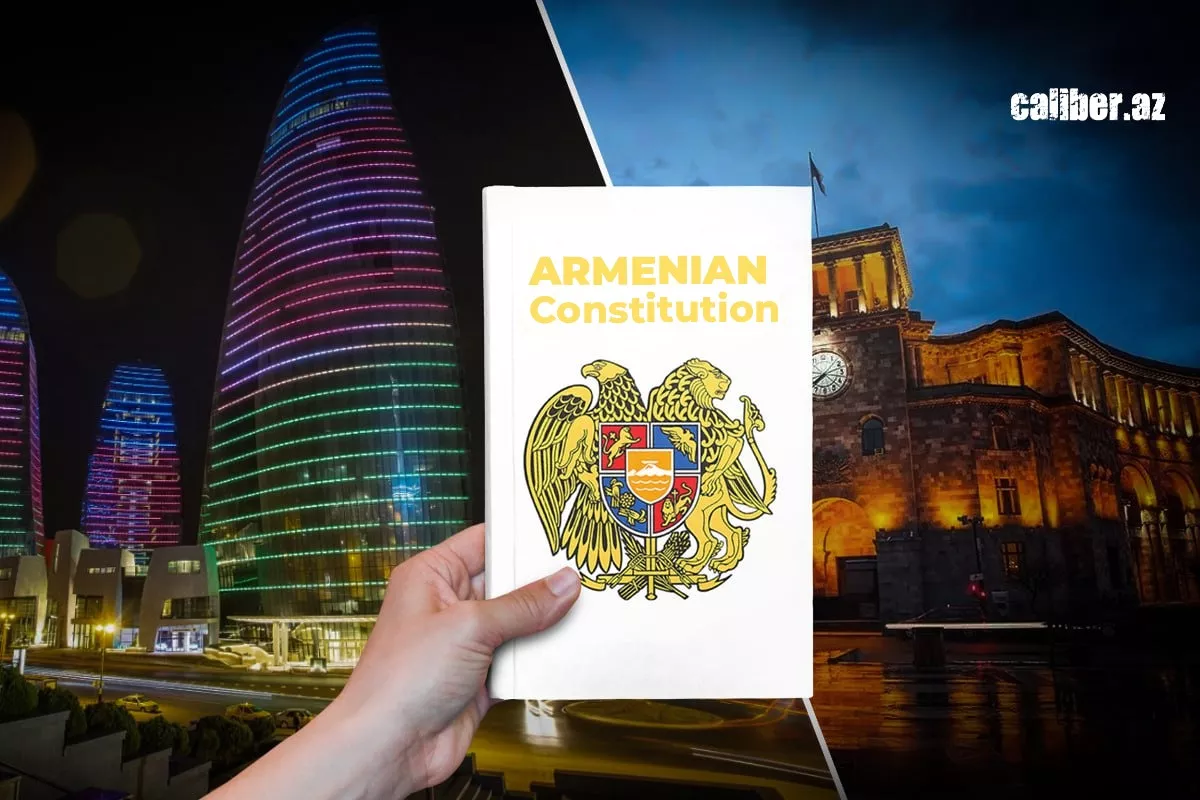What lies behind Pashinyan's ambiguous rhetoric? Armenia’s constitutional dilemma
Armenia’s leadership continues its populist maneuvering around the country's constitution, which contains clauses implying territorial claims against Azerbaijan. Recently, Prime Minister Nikol Pashinyan took to his account on "X" to state that "No provision of the RA Constitution contains any territorial claim against our neighbors."
Yerevan, by refusing to meet Baku's demand to amend the Constitution of the Republic of Armenia, is actively hindering the signing of a comprehensive peace agreement. Instead, it proposes a truncated document, aiming to preserve future opportunities to assert territorial claims against Azerbaijan. Consequently, Armenian authorities often declare that the constitution is a domestic issue for Armenia.
What stands out in this context is the provocative nature of Pashinyan’s recent post, where he referred to a Constitutional Court ruling concerning Armenia's Declaration of Independence. "The Constit Court of Armenia, in its Decision dated Sept 26, 2024, noted that the reference to the Declaration of Independence in the preamble part of the Constit pertains exclusively to those provisions of the declaration that have been enshrined in the articles of the Constit," the Armenian prime minister wrote.
This raises the question: why has Pashinyan drawn public attention to the Constitutional Court's ruling once again? Let’s delve into the matter.
On September 26, Armenia's Constitutional Court issued an opinion on the framework governing the work of Armenian and Azerbaijani commissions on delimitation, which included a provision concerning Armenia's Declaration of Independence. Specifically, the court invalidated the constitutional reference to the declaration, which mentions the "reunification of the Armenian SSR and Nagorno-Karabakh."
As expected, this caused a significant stir in Armenia. However, Arman Dilanyan, Chair of the Constitutional Court, downplayed the issue, telling journalists that the court's September ruling introduced nothing new and merely reiterated what had been evident for 30 years.
Pashinyan’s post, therefore, can be interpreted as a dual-edged message. On one hand, it subtly hints that Karabakh is part of Azerbaijan. On the other hand, it contradicts itself by claiming that no provision of Armenia's Constitution contains territorial claims against neighboring states.

It seems that Pashinyan’s ambiguous maneuvering is primarily aimed at maintaining internal political balance. This is particularly relevant given that, following the Constitutional Court’s ruling on Armenia’s Declaration of Independence, opposition factions accused the current government of artificially pitting the declaration against the constitution.
On the other hand, considering Yerevan’s inconsistency, it can be inferred that at this stage, Pashinyan is testing the domestic waters to advance the concept of a “real Armenia.” In this context, it is worth recalling that in October, National Assembly Speaker Alen Simonyan openly stated during a verbal spat with opposition MP Gegham Manukyan that "Karabakh has been and remains an internationally recognized part of Azerbaijan." Furthermore, in an earlier interview with Radio Azatutyun, Simonyan acknowledged that Baku’s operation in Karabakh was backed by at least 3-4 UN Security Council resolutions.
As of now, the issue of amending Armenia’s constitution remains at a standstill, suggesting that long-term peace is not on Yerevan’s immediate agenda. On the contrary, Armenia is actively pursuing militarization, acquiring new types of modern weaponry. A recent example is the Armenia-France defense cooperation program for 2025, which in reality entails the procurement of new offensive arms. Acting under the guidance of its Western patrons, Yerevan harbors revanchist ambitions, while its authorities’ declarations of commitment to peace are little more than a publicity stunt aimed at garnering international attention.
As a result, Paris's unilateral policy of dictation drives Yerevan further away from Baku’s peace agenda, significantly reducing the likelihood of constitutional revisions and the signing of a comprehensive peace agreement with Azerbaijan. This trajectory represents the worst-case scenario for preserving the remnants of Armenian statehood.








